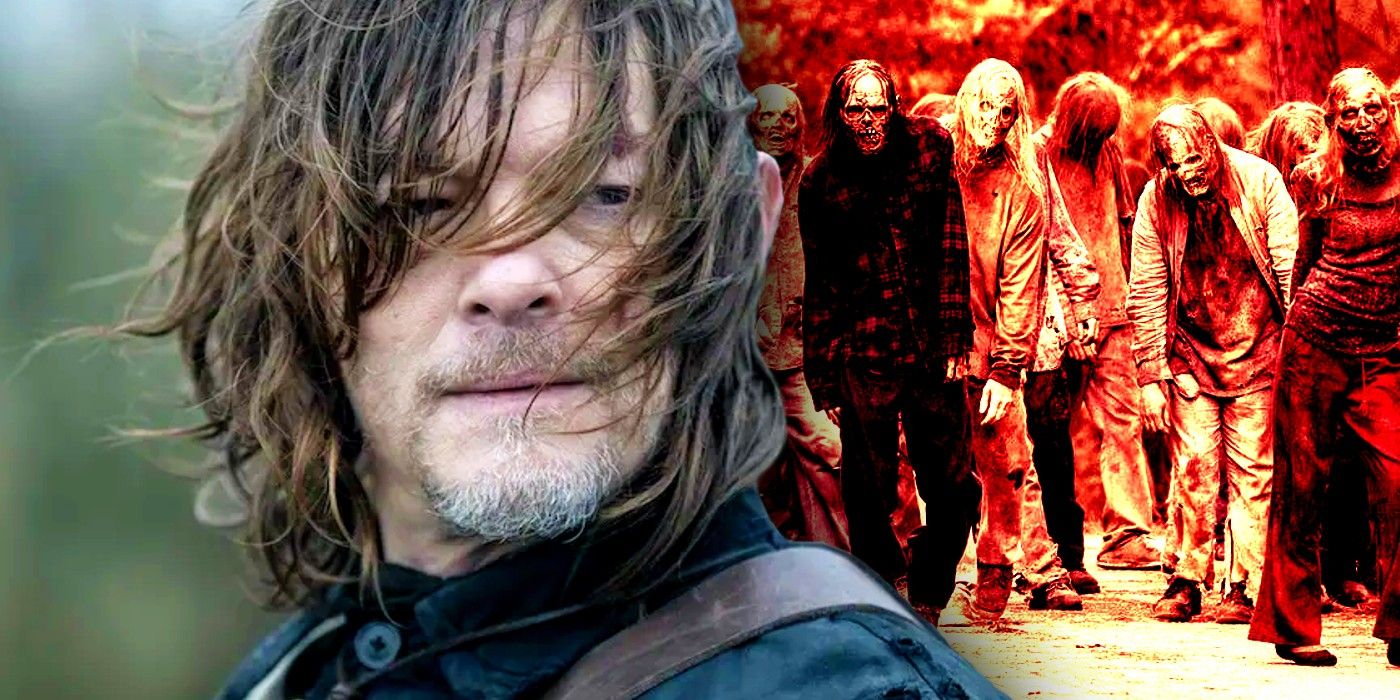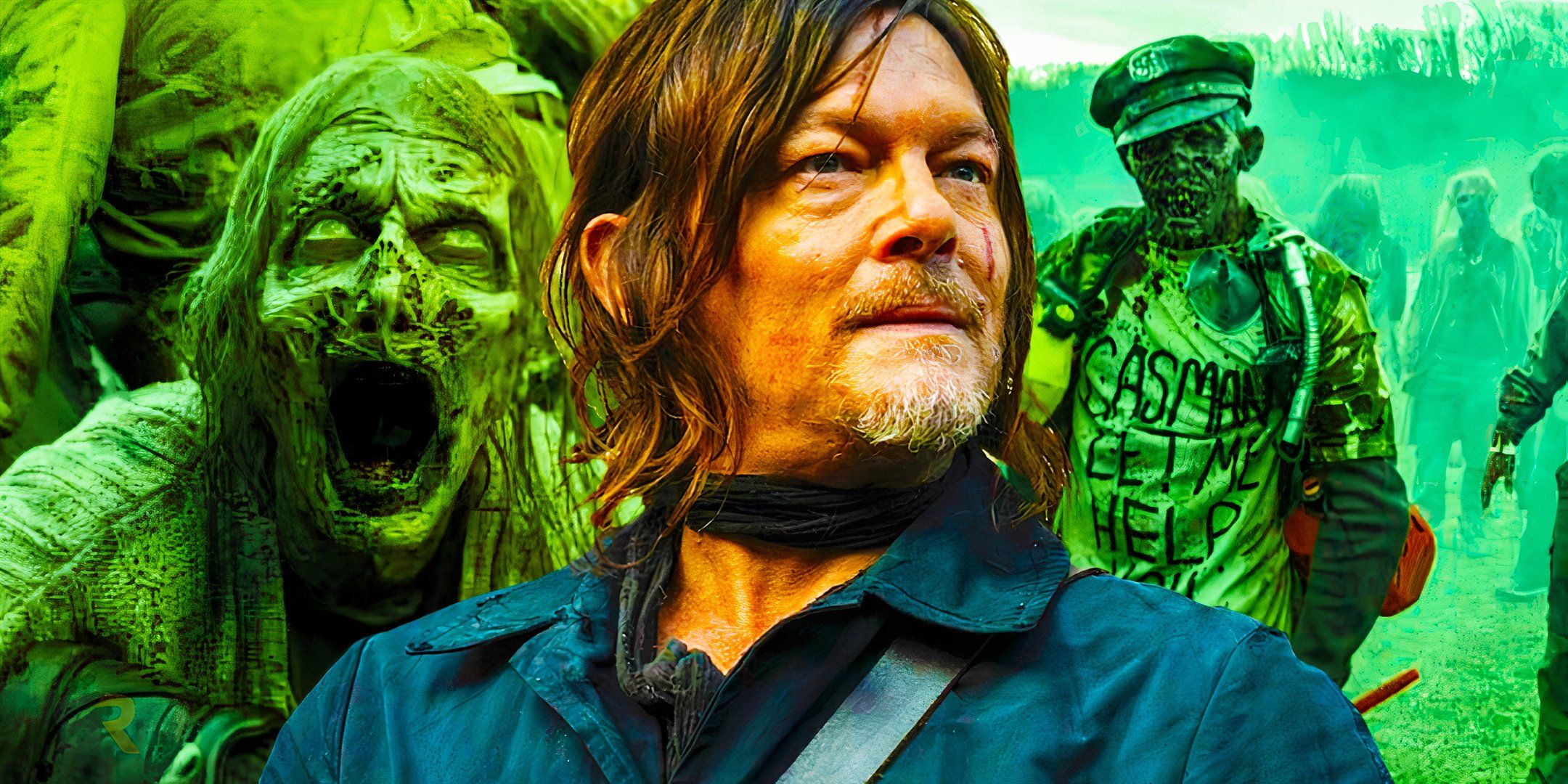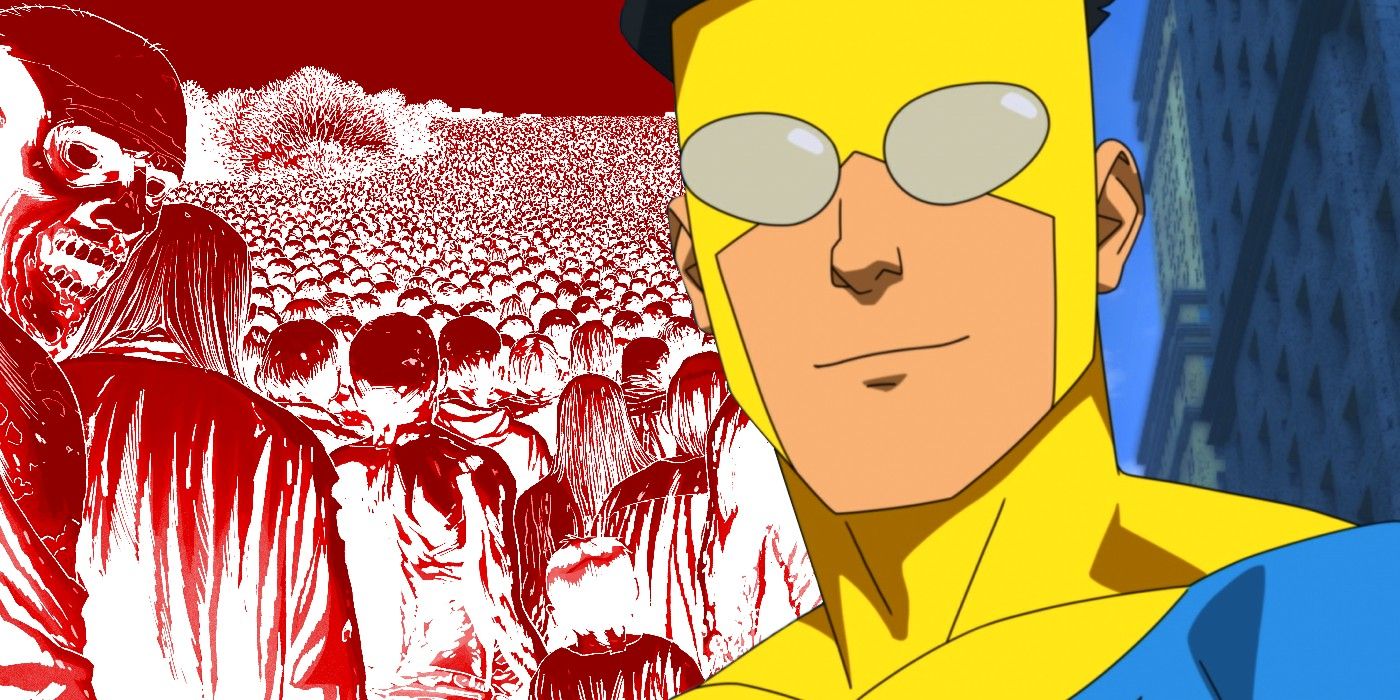
The shambling undead of The Walking Dead may be known to fans as ‘Walkers,’ but creator Robert Kirkman admits he’s never liked the term for a very personal reason. Setting itself apart from other zombie franchises, Walking Dead rarely uses the ‘Z word,’ and the original comics depict each group of survivors having their own terms for the risen dead. Not only does Kirkman dislike the term that ended up defining his undead antagonist, but there’s another he really wishes he’d used more.
While zombies are most often called ‘Roamers’ in the comics, the AMC adaptation later coined the term ‘Walkers,’ smartly tying its zombie terminology into the franchise’s title. However, one person who was never a fan of the term was Walking Dead writer and co-creator Robert Kirkman, who states in The Walking Dead Deluxe #92 that the term “always sounded weird to me.”

Kirkman notes that while the TV show’s language spread to the comics (a rare example of the adaptation influencing the original, which Kirkman took pains to avoid), he never liked the term. This was partly because it reminded him of Cory Walker – the co-creator of the Invincible comics. Working so closely with Walker for over a decade, Kirkman understandably always linked the TV show’s zombie terminology to his friend’s name. That would be an uncomfortable enough situation, but the very same issue showcases a term Kirkman wishes he’d used way more.
Alternate terms for ‘Walkers’ in the comics include Biters, Deadies, Infected, Cannibals, Bad Ones, and the Fallen.
Walking Dead’s Creator Never Liked ‘Walkers’
The Term Brought to Mind Invincible Co-Creator Cory Walker

The Walking Dead Deluxe sees original creators Robert Kirkman, Charlie Adlard and Tony Moore joined by colorist Dave McCaig, republishing the comic series in color for the first time. Extras include new covers and creator notes in which Kirkman looks back at his planning document for each issue. The Walking Dead Deluxe #92 reveals that Kirkman never liked the ‘Walker’ terminology, and what he wishes he’d used instead.
Kirkman clarifies that there were always meant to be many names for the series’ zombies, since disconnected groups of humans would have come up with their own terms. Alternate terms used in the comics include Biters, Deadies, Infected, Cannibals, Bad Ones, and the Fallen. However, one of Kirkman’s favorite terms is used by Jesus Monroe, who refers to them as ‘Empties.’ In his creator notes, Kirkman writes, “Did that ever come up again? I have no recollection of that ever being used by anyone else. What a shame.”
Kirkman has also stated that he wishes he hadn’t used the term ‘herd’ to describe large groups of zombies, since it makes him “think of cows.” Kirkman writes in Walking Dead Deluxe #54 that:
To be honest, I shudder a bit when I hear it or read it. The main reason for that is that almost IMMEDIATELY after it started appearing in print, I realized “HORDE” would have been a MUCH better name. Ugh.
Contrary to many fans’ belief, Walking Dead‘s characters do use the term ‘zombie’ to describe the undead, just not with particular frequency. Indeed, it’s clear that in The Walking Dead, there’s no culturally dominant term for the dead who return to life. The reason why is one of the most fascinating secrets of The Walking Dead, explaining where the franchise’s timeline diverges from the real world.
Walking Dead takes place in a world where George A. Romero’s Night of the Living Dead was never made, robbing its characters of zombie lore.
Walking Dead Is Set in a World Without George A. Romero
Walking Dead’s Connection to Night of the Living Dead Explains Why It Doesn’t Use ‘The Z Word’
As confirmed by various people connected to The Walking Dead – including Robert Kirkman on the Talking Dead TV show – the series takes place in a world where the works of George A. Romero were never made. While Romero didn’t create the idea or terminology of zombies, Night of the Living Dead popularized the modern lore surrounding dead bodies which return to life, hungry for human flesh. Without Romero, the humans of The Walking Dead have far less awareness of zombie horror, and aren’t versed in the tropes and traditions that, in many cases, they’re living through.
However, the potential reason that Walking Dead takes place in a world without Romero is even more fascinating. Robert Kirkman and Tony Moore originally pitched their zombie title as a comic continuation of Romero’s Night of the Living Dead. The movie had recently entered the public domain, and the original pitch for Walking Dead was set in the ’60s and even used the likenesses of characters from the movie (per CBR). The decision was quickly made to make Walking Dead a unique title unconnected to Romero’s work. Despite this change, it’s possible that the nonexistence of Romero’s movies is a holdover from the original pitch – after all, the only people guaranteed not to have seen Night of the Living Dead are the characters of Night of the Living Dead.
Kirkman has been public in discussing how Romero’s work inspired his own zombie epic, and has even claimed to have given Romero multiple illustrated cameos in the comic’s background. He’s also taken pains to evolve his zombie lore separate to Romero’s movies, giving even more meaning to the characters (mostly) avoiding the word ‘zombie.’ However, the early link between the two makes Walking Dead‘s unique zombie terminology even more fascinating.
Kirkman’s Creator Notes Reveal Walking Dead’s Secrets
The Pop Culture Juggernaut Was Originally Very Different, Including Killing Rick Early
The Walking Dead Deluxe remains a treasure trove for fans of the franchise. Not only are they learning major differences that were originally planned for the story – like Shane killing Rick, leaving Carl as the main character – but also the behind-the-scenes machinations that influenced the franchise, such as Negan’s original name being changed from ‘Naygus’ because Star Trek: Deep Space Nine had already used it.
Kirkman also reflects honesty on past decisions, in this case stating that ‘Walkers’ never worked for him, while also calling out scenes he regrets, such as the early moment when the survivors separate down gender lines, with the men hunting and the women tending to the camp, which Kirkman admits is sexist in retrospect.
The Walking Dead #1 was published in 2003, and 21 years later it’s still got an army of fans and new projects in the works. Finding out the many forces that helped shape The Walking Dead will be interesting to any fan who wants to know the many ways that such a pop culture juggernaut could have been different, in both big ways and small.





